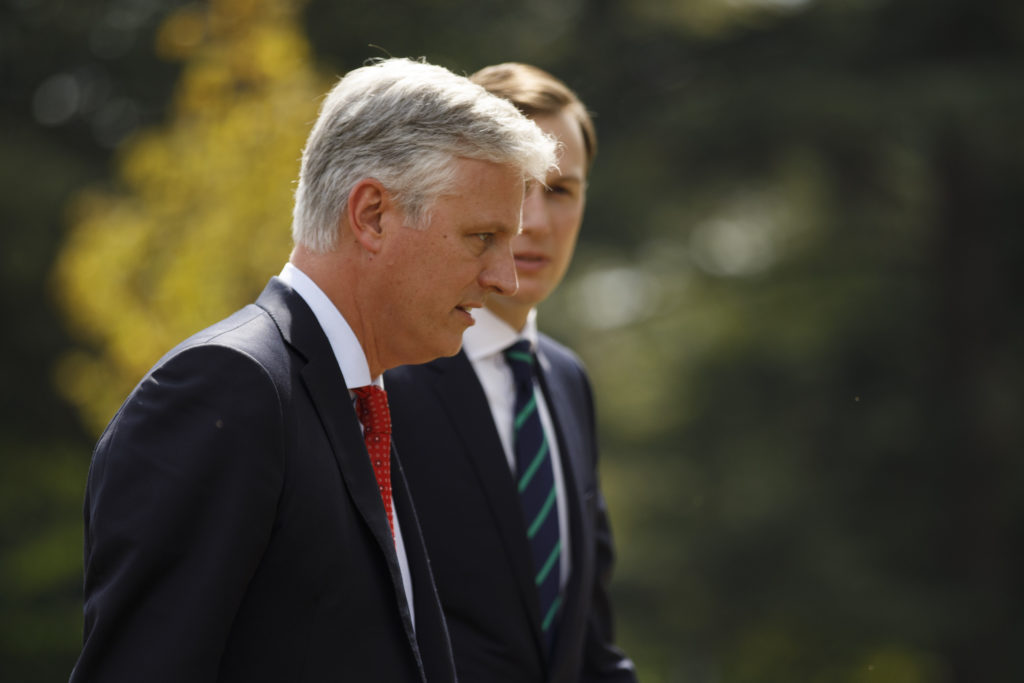
There are 10 members of The Church of Jesus Christ of Latter-day Saints currently serving in Congress.
Of the 10, four are in the Senate and six are in the House of Representatives. They represent Arizona, Idaho, New Mexico and Utah.
Despite a 2019 Pew Research Center report showing that the number of Latter-day Saints in Congress is the lowest it has been in the last decade, members of the Church continue to play a role in U.S. politics at the local and national level.
President Donald Trump’s appointment of National Security Advisor Robert O’Brien in early September marked the latest Church member appointed in national politics. Upon his appointment, O’Brien became the highest-ranking member of the Church in the U.S. government.
Despite common ties to the Church, Latter-day Saints serving in political positions have different reasons for getting involved in politics.
MJ Henshaw, former communications director for Utah Sen. Mitt Romney, said she chose to get into politics because it gave her a sense of purpose.
“I like being involved in something that is bigger than me. This country and what it stands for is bigger than me, and I like being involved in something that actually has an impact on people’s lives and that can work for the good,” Henshaw said.
As political pressures form around important decisions, some Latter-day Saints find their religious beliefs have a large effect on the decision-making process.
“For me, my religious beliefs ground me in principle, and I think that as you live life, if you live a principle-based life, then you’re able to anchor yourself on certain principles,” Henshaw said.
Heber City Mayor Kelleen Potter said her love for politics grew when she was a research assistant for former BYU political science professor David Magleby. Since then, she said, everything has fallen into place.
“I was never going to run for office, but then some friends nudged me into doing it,” Potter said. She recalled a friend calling her the day before candidate filings for city council were due. They asked her if she would consider running.
“I told them I didn’t know anything about local government, but they kept pushing me, so I decided to try. I never would have thought to run without that encouragement,” Potter said.
Potter said she believes one of the greatest things she has learned from her membership in the Church is “honesty and integrity.”
“I always make my decisions based on my values,” Potter said.
As members of the church participate in U.S. politics, not only do their religious views play a role in their decision making and interactions with others but their political involvement also gives them opportunities to share the gospel.
“I am so thankful I chose the political route because other opportunities that have come in my life have been great opportunities for me to serve in government in ways that I wouldn’t have if I didn’t have those experiences and background,” Potter said.
Wayne Williams, the former Secretary of State in Colorado and now a Colorado Springs city councilman, said he was the only member of the Church participating in state-level politics in Colorado 17 years ago.
While Williams was Secretary of State, he had the opportunity to invite both Colorado senators, the former governor and their lieutenant governor to attend the Fort Collins Colorado Temple open house. He said the experience was a highlight of his entire time in politics.
“One of the things (my political involvement) has provided me was that I was able to reach out to a lot of elected officials across the state and invite them to come to the temple opening,” Williams said, adding that many of them accepted the invitation.




